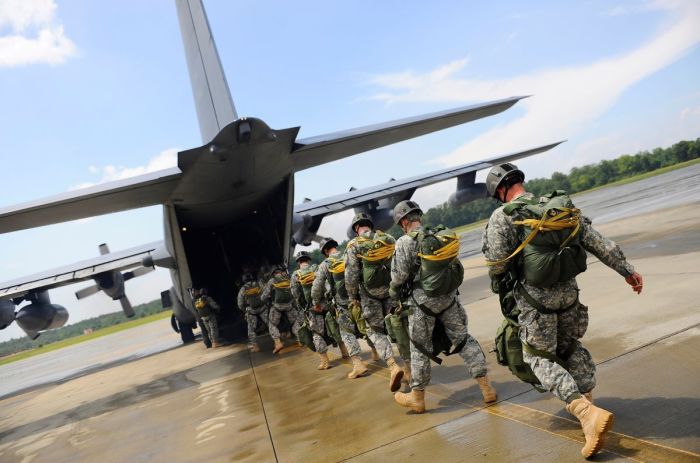
A push to require women to register for the military draft is generating fierce backlash among members of the U.S. Congress, even as a bipartisan group of senators voted to advance massive legislation containing the controversial provision.
In a statement published Friday, the U.S. Senate Armed Services Committee announced that it had voted 22-3 to advance the National Defense Authorization Act for Fiscal Year 2025 to the Senate floor. While Committee Chair Sen. Jack Reed, D-R.I., indicated that he voted against it when summarizing the contents of the bill, the identities of the other two senators who opposed the legislation remain unknown.
Reed acknowledged that the legislation makes "important progress in a number of areas, including a well-deserved pay raise for military servicemembers, powerful new security initiatives in the Indo-Pacific, and significant support for technologies like counter-drone defenses and AI" while expressing concern that "it includes a funding increase that cannot be appropriated without breaking lawful spending caps and causing unintended harm to our military."
Meanwhile, Sen. Roger Wicker, R-Miss., the ranking Republican member on the committee, praised the bill as evidence of "bipartisan support for doing more to maintain deterrence and protect American interests."
Neither Reed nor Wicker mentioned that it contains a provision that "Amends the Military Selective Service Act to require the registration of women for Selective Service," also known as the military draft, according to a summary of the measure compiled by the committee.
Rep. Chip Roy, R-Texas, forcefully pushed back against the proposal in an X post Friday.
Reacting to a different X post highlighting the provision that would require women to register for the draft and including a screenshot of the summary, Roy declared: "You can go straight to hell. Over my dead body."
Sen. Mike Lee, R-Utah, who does not serve on the Senate Armed Services Committee, shared the same X post and expressed opposition to the proposal.
He wrote out the phrase "We Will Not Draft Women," pressing enter in between each word so that there was only one word per line. He concluded his post by declaring, "I'm with @ChipRoyTX — this will happen over my dead body."
As explained by the Senate Armed Services Committee, "Committee approval is the first step in a months-long process to establish defense funding levels and set policies for the Defense Department and the Energy Department's national security programs."
The bill will be debated and voted on by the full U.S. Senate. A separate measure will make its way through the U.S. House of Representatives. Once both chambers of Congress pass their respective versions of the bill, they must reconcile the two bills in a bicameral conference and be approved by each chamber before a final version of the bill is sent to the president's desk.
The Republican-controlled U.S. House of Representatives already passed its version of the NDAA, the Servicemember Quality of Life Improvement Act and National Defense Authorization Act for Fiscal Year 2025, in a 217-199 vote last week.
For the most part, support for the legislation fell along party lines. Three Republicans, Reps. Marjorie Taylor Greene, R-Ga., Thomas Massie, R-Ky., and Matt Rosendale, R-Mont., joined most Democrats in opposing the measure. Six Democrats, Reps. Henry Cuellar, D-Texas, Don Davis-D, N.C., Jared Golden, D-Maine, Vicente Gonzalez, D-Texas, Mary Peltola, D-Alaska, and Marie Perez, D-Wash., broke with their party to vote in favor of it.
The House version of the NDAA spans more than 1,000 pages and several amendments to the bill were considered and approved by the House. One such amendment, authored by Rep. Beth Van Duyne, R-Texas, prohibits "the Secretary of Defense from paying for or reimbursing expenses related to abortion services."
Van Duyne's amendment passed the House in a 214-207 vote Thursday. All but two Republicans, Reps. John Duarte, R-Calif., and Brian Fitzpatrick, R-Pa., voted in favor of the amendment while all but one Democrat, Rep. Henry Cuellar, D-Texas, opposed it.
The reaction from Roy and Lee to the provision that would require women to register for the draft suggests that Republicans, the majority party in the U.S. House of Representatives and the minority party in the U.S. Senate, will work to ensure that it does not make it into the final version of the bill.
However, the fact that the Senate version of the NDAA containing the provision was approved by nearly all members of the Armed Services Committee, including Republicans, raises questions about the level of Republican opposition.
The NDAA is one of several appropriations bills that must pass before fiscal year 2025 begins on Oct. 1. Failure to approve the funding bill would lead to a partial government shutdown.
The Christian conservative advocacy organization Family Research Council has long opposed efforts to require women to register for the military draft.
"Family Research Council honors and values the many women who have served and currently serve their country with great distinction. However, we find no convincing reason to require females to register for the Selective Service," a 2021 FRC issue brief reads. "We believe female conscription to be an ill-conceived and reckless policy."
The U.S. has not employed a military draft since 1973. But if a major conflict were to arise, FRC contends that the U.S. has "sufficient males to fill draft requirements without resorting to drafting females."
"Currently, we have over two million service members, excluding the Coast Guard. If our armed services needed to be more than doubled to five million ... that would only require roughly 2.5 percent of the male population to serve," the publication reads. "Since approximately 1.1 percent of the male population is currently serving, this means that only an additional 1.4 percent would be needed."